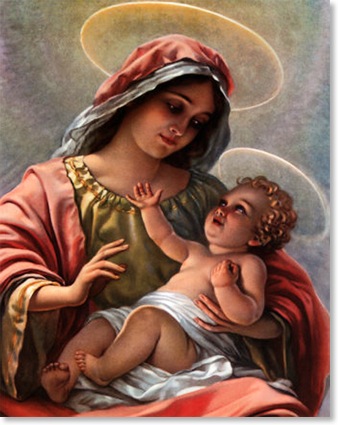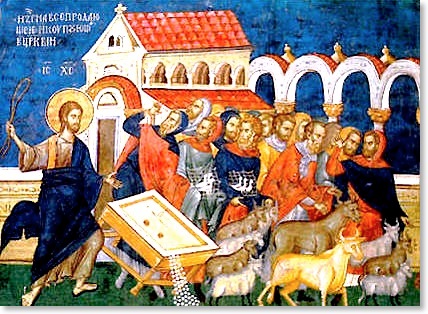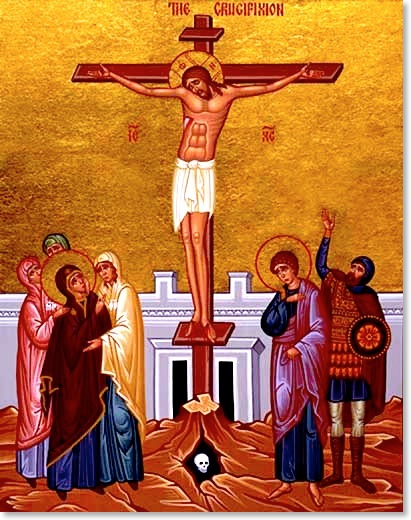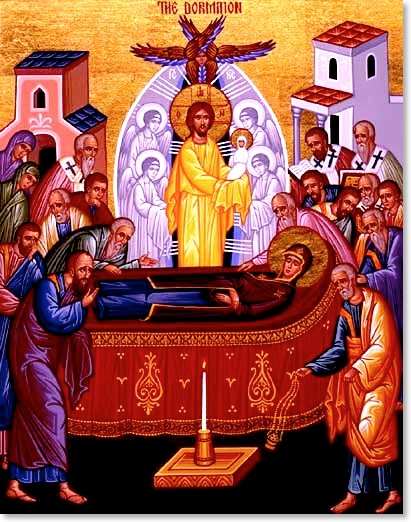
Catholic Prayer Revival
Apologetics of Mary
Do Catholics Worship Mary? If you know of a Catholic who "worships" Mary then he or she is NOT a Catholic. Worship is for God alone. Catholics venerate Mary. Jesus said: "Honor thy mother and father: and, He that curseth father or mother, let him die the death, (Mt. 15:5)." Just as Jesus honors His mother, so do we, for on the cross Jesus gave His mother to all mankind when he said to St. John: …Behold thy mother! (Jn. 19:27)
Catholics treat Mary as if she were a goddess - Mary is NOT a Goddess. She has no power or authority of her own. Mary cannot save your soul, you can only be saved through Jesus Christ. Mary's only mission is to lead us to Christ. At the wedding of Cana, when the wine ran out, Jesus listened to his Mother's plea on behalf of the bride and groom and turned water into wine. (Jn. 2:3-7).
No one knows or loves her son more than Mary. We ask Mary to pray for us (mediate) or anyone else in need in the same manner we ask a friend to pray (mediate) for us. We believe that Mary continues to intercede for us to her son. It is for this reason we ask Mary, in faith, for her prayers. Our prayers to Mary are an addition to our prayers to God--not a replacement.
Yes, there is one mediator between God and man--Jesus Christ, but does not praying for each other honor Christ? Who would know a son better than a mother? Why should we not ask Mary to pray for us? For those who think that no one is in heaven and and that our prayers to Mary are meaningless; then why did Jesus say on the cross to the poor thief, "This day you will be with me in Paradise!" (Lk. 23:43) Do you think Jesus would take a thief to Paradise and leave His beloved mother behind?
How can Mary be the mother of Catholics? Mary is not only the mother of Catholics but of all God's children. In Revelation 12:1-17 it clearly shows Mary as the mother of all.
Verses 1-2 speak of a woman who was with child. This woman was not an ordinary woman as the verse indicates: And there appeared a great wonder in heaven; a woman clothed with the sun, and the moon under her feet, and upon her head a crown of twelve stars: And she being with child cried, travailing in birth, and pained to be delivered. Some say that this verse is symbolic of the church. But who is the child (Clue: Jesus)? What woman can you think of, in the Bible was with child and was traveling? (Clue: Mary).
In verse 3-4 there is reference to a dragon that was waiting to devour the child. Who is the dragon? (Clue: Satan). Then verse 5 goes on to say that she brought forth a man child who was to rule all the nations with a rod of iron. Hmmmm wonder who that could be? (Clue: Jesus). A little further on in verse 7 we see Michael and his angels fighting against the dragon. In verse 9 the "old serpent" is identified as Satan. In verse 17, we see that the dragon (Satan) was angry with the woman (Mary) and went to make war with the remnant of her seed (mankind), which keep the commandments of God, and have the testimony of Jesus Christ.
Mary is your mother!
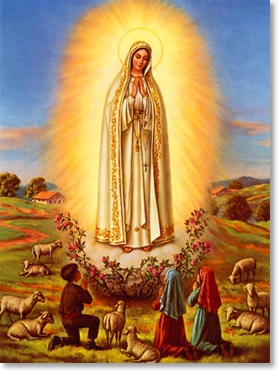
In the old Testament, the Ark of the Covenant was holy because of what it contained inside. It represented the presence of God to the Israelites. God made it clear to Moses in Exodus 25 that every detail must be followed precisely in the construction of the ark. What does this have to do with Mary? The ark of the Old Testament was a dwelling place for God on earth, and Mary is the ark of the new covenant for she carried God's only son. Would the same God who carefully instructed the creation of the old ark disregard the new ark (vessel) that carried His son? If the old ark was so important to God, would not the ark that carried His Son be even more important? Mary is not to be disregarded and thrown aside. How could any woman raise a child so perfectly as Mary raised Jesus, without not being filled with graces upon graces from above?
What about Mary's Children? - The fact is, Mary had no other children, only Jesus. Then why does the Bible mention Jesus' "brothers and sisters?" In Hebrew and Aramaic there is not a word for the term "cousin," so the word "brethren" was used. Through out the Bible the term "brethren" is freely used. For example, in 2 Kings 10:13-14, there is a reference to the forty-two "brethren" of king Ochozias. In Mark 6:1-3, the "brothers" of Jesus are listed as "James, Joses, Simon and Judas are mentioned. It's funny but Mary is NEVER called the mother of anyone except as being the mother of Jesus. The "brethren's" of the Lord could not have been the sons of Mary. Look at Mark 15;40, the women standing at the foot of the cross was Mary the mother of James the less and of Joses, and Salome; John 19:25 states: ·Now there stood by the cross of Jesus, his mother and his mother's sister, Mary the wife of Cleophas (this means that she was Jesus' aunt and her sons' Jesus' cousins.), and Mary Magdalene. Mark 15:47 states and Mary Magdalene and Mary the mother of Joses (this would be Jesus' aunt - Joses his cousin) be held where he was laid. Mark 15:47 states: And when the Sabbath was past, Mary Magdalene and Mary the mother of James and Salome (As you see, there is no mention of Mary the mother of Jesus), had bought sweet spices, that they might come and anoint him (again we see his aunt - and James and Salome his cousins).
The gospel account of 12-year-old Jesus lost in the temple does not mention siblings. If Christ did have brothers, why did he entrust his mother to the care of his beloved disciple? Why does Mt. 1:25 state that "he knew her not til she brought forth her 1st son? This does not imply that before Jesus' birth or after his birth, sexual relations took place between Mary and Joseph. On the contrary, all this implies is that an action did not take place up to a certain point. For example, · 2 Sam 6:23 states, "Michale the daughter of Saul had no children until the day of her death." Does this mean she had children after her death? Of course not!! You must remember that the way of speech and interpretations in Jesus' day is far different then the way we imply today.
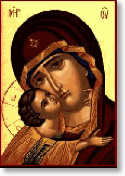
The early Christian writings of the DIDACHE (358 A.D.) state the following:
767a [2, 70] The union, therefore, was of just such a kind, so that He might unite what is man by nature, to Him who is the nature of the Godhead, thereby assuring the accomplishment of salvation and His deification. Let those, therefore, who deny that the Son is by nature form the Father and proper to His essence, deny also that He took true human flesh from the Ever-Virgin Mary. In neither case would it have been profitable to us men: if the Word were not by nature true Son of God, or if the flesh which He assumed were not true flesh.

